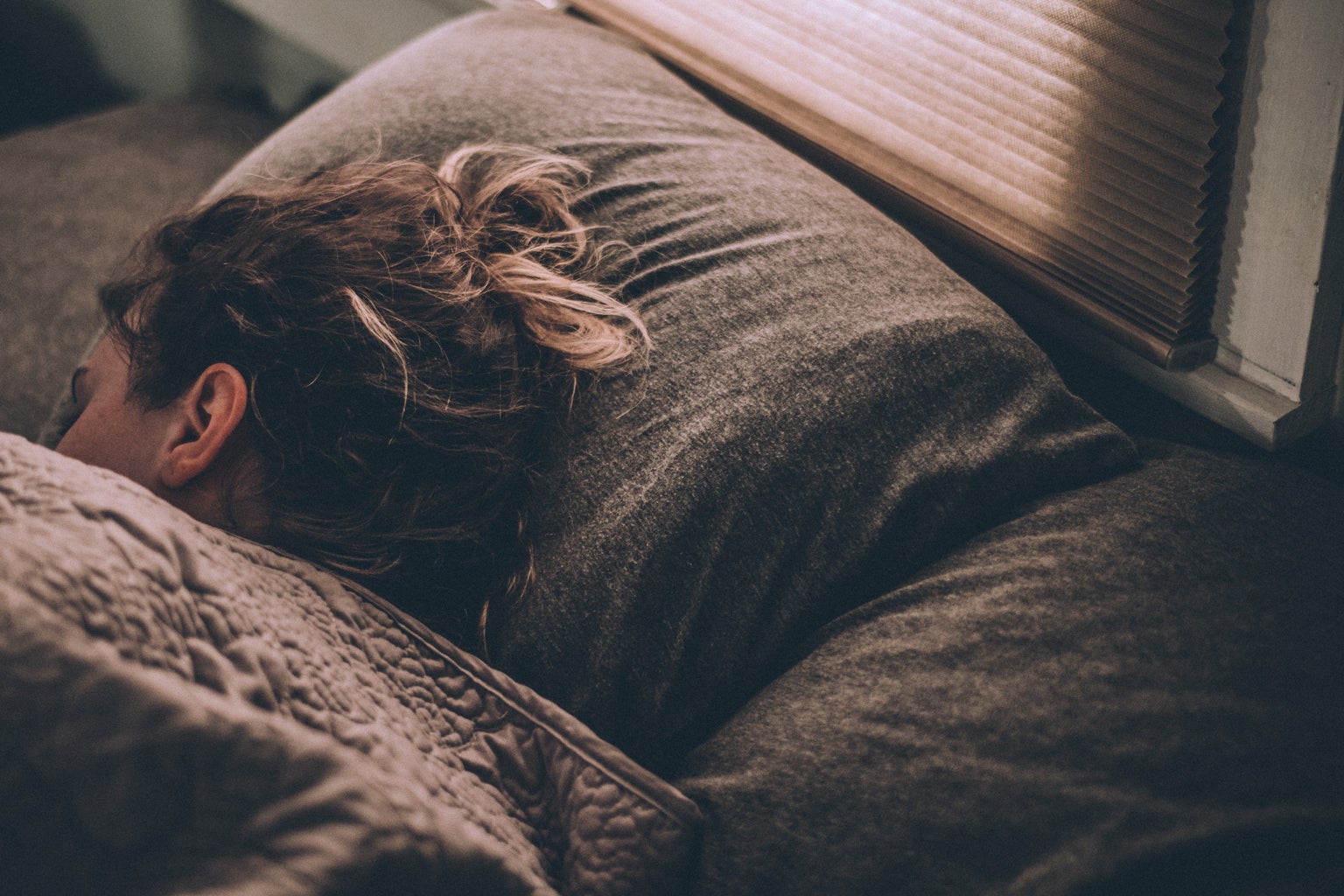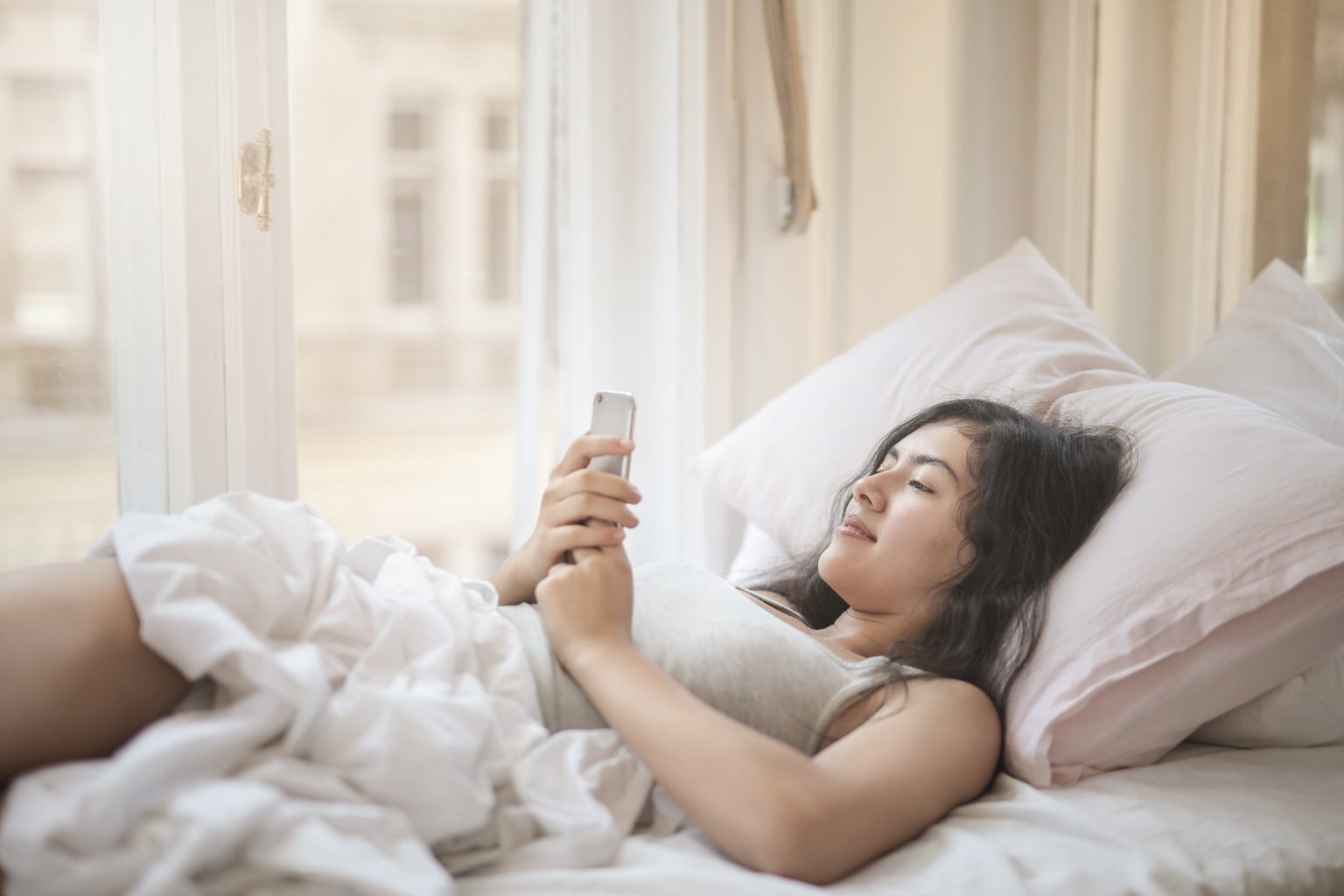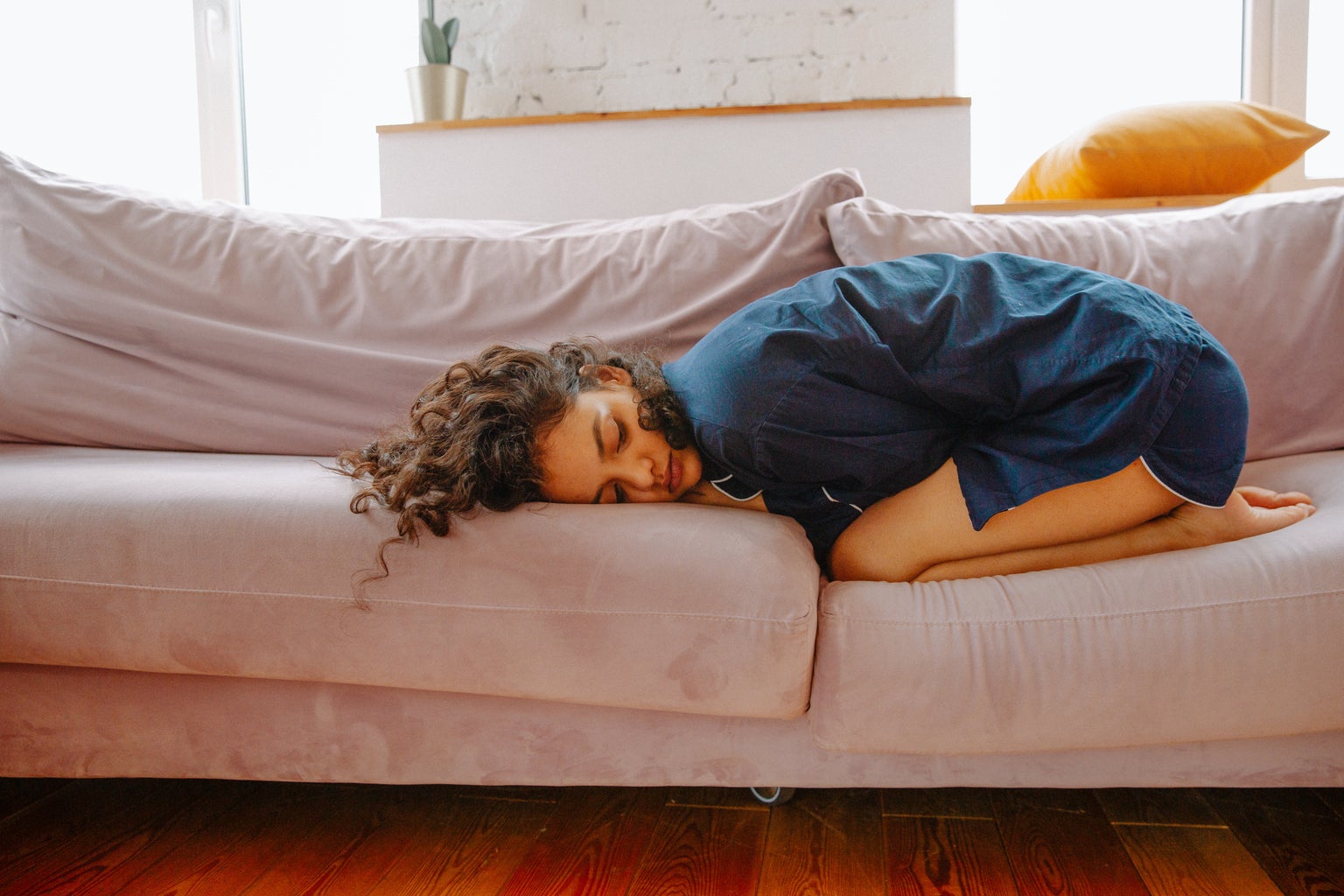College, or simply being an adult, is quite the adjustment. Keeping up with your school work, maintaining a social life, and for some, having a job, is stressful. Because of this, finding time to relax and take care of your mental health can sometimes be put on the back burner. Thankfully, mental health resources are more accessible and easy to find – enter the Calm app.
If you haven’t heard of Calm yet, it’s the number one app for sleep, meditation, and relaxation. If you are looking for a meditation practice to help you unwind after class or need rain sounds to help you sleep, Calm is your new BFF. (Oh, and BTW, Calm loves college students: U.S. students can get Calm Premium for $9.99/year for a limited time only.)
On Oct. 30, Calm dropped their first ever Snooze Report, which dives into the sleep patterns, habits, and challenges of Gen Zers and Millennials. The sleep study surveyed nearly 10,000 adults to provide insight into sleep habits, obstacles, and how sleep affects mental health. It was created ahead of this year’s Daylight Saving Time — an event that often disrupts sleep schedules. (Fun fact: approximately 2 in 3 people report difficulty adjusting to it. Raise your hand if you have ever been personally victimized by Daylight Saving Time: Me too, y’all.)
What makes this report especially interesting (and important!) is that it highlights the unique sleep dynamics of Gen Z and Millennials. According to the report, Gen Z and Millennials both have trouble resting, but their varied habits, interests, and life experiences explain two very different relationships with sleep.
Because the Snooze Report provides interesting insights into the sleeping habits of Gen Zers, I wanted to speak with an expert to get tips and tricks on how college kids can get better sleep. I spoke with Sophie Cress, a licensed therapist and mental health expert, about Gen Z’s sleeping habits and how we can improve them.
There Are Lots Of Factors That Contribute To Gen Zers Poor Quality Of Sleep, But Technology Is The Biggest One.
As a Gen Zer, I will be the first to admit that I do not have the best sleeping habits, and I think there are several factors that contribute to that. According to Cress, I’m definitely not the only one: “As someone who works in the field of mental health, I have noticed a few key factors that contribute to the sleep problems experienced by Gen Zs. These issues reflect a complex mixture of social, technological, and psychological factors, which have led to a significant disruption in their sleep patterns” Cress explains.
The biggest reason Gen Zers have bad sleeping habits, you ask? Technology. “The widespread use of technology is the most prominent factor affecting the sleep of Gen Z,” Cress tells Her Campus.
“This generation has grown up with access to smartphones, tablets, and computers and the constant connectivity they provide,” Cress adds. “Scrolling through social media like TikTok, streaming services, or engaging in online activities late at night can result in delayed bedtimes and exposure to the stimulating blue light emitted by screens, which disrupts their circadian rhythms. These habits make it difficult for Gen Z to relax and fall asleep.”
I wish I could say I don’t go on my phone before I fall asleep, but I would be lying to myself if I said that. (And you would be too!) However, it is so important to try your best to put the phone down and then watch and learn — you will see how much better your quality of sleep becomes.
Academic pressures, and mental health, are among the key reasons why Gen Z struggles with sleep.
In addition to scrolling through TikTok before you fall asleep, academic pressures and mental health issues are significant factors in Gen Z’s sleeping habits. “Academic pressures and the competitive nature of the education system can lead to excessive stress and anxiety, which are known to cause sleep difficulties,” Cress explains. “Gen Z individuals often face demanding academic requirements, such as standardized tests, college applications, and the need to maintain high grades, which can make it difficult for them to relax and can cause intrusive thoughts at bedtime.”
According to The Snooze Report, 51% of Gen Zers struggle with at least one mental health condition, as opposed to 45% of Millenials.In turn, this impacts the way that many of us sleep. “[Struggling with your mental health] can result in racing thoughts, rumination, and even nightmares, further disrupting their sleep patterns,” Cress tells Her Campus.
Cress also explained that the COVID-19 pandemic has heightened these concerns. “The pandemic has exacerbated these concerns, as many Gen Zers have experienced increased stress and isolation due to lockdowns and changes in daily routines,” she adds. In alignment with The Snooze Report, 35% of folks reported shifting their bedtime, which can negatively impact one’s sleeping routine.
HOwever, there are ways to start sleeping better.
Even if you think you have tried time and time again to improve your quality of sleep but have seen no outcome, don’t give up! This is something that takes time and consistency, and Cress explains that, “Undoubtedly, enhancing the quality of your sleep typically necessitates implementing a blend of lifestyle modifications and relaxation methods.”
If you’re anything like me and love essential oils, they are one of your new BFFs when it comes to improving your sleep. “Certain scents such as lavender, chamomile, or cedarwood have been found to be helpful in promoting relaxation and sleep,” Cress says. “You can try using essential oils in a diffuser or lighting scented candles in your bedroom to take advantage of these scents.”
Additionally, Cress recommends that creating a peaceful environment is key to staying relaxed. “To create a peaceful auditory environment that blocks out disturbances and promotes relaxation, consider using white noise machines or nature sound recordings. Ocean waves or forest sounds are examples of nature sounds you can try.” I can attest to this — I fall asleep to brown noise every night and I highly recommend it.
Cress advises that establishing a healthy nighttime routine and staying off screens at least an hour before sleep is recommended. Instead, consider swapping your phone for a book, warm bath, or meditation session. “Enhancing the quality of your sleep and feeling revitalized can be achieved by limiting the time you spend staring at screens before bedtime,” Cress says.
Perhaps the best thing you can do to improve your sleep is to stay consistent. “It’s crucial to create a regular sleep schedule, going to bed and waking up at the same times each day, even on weekends, to regulate the body’s internal clock,” Cress advises.
In addition to keeping a consistent sleeping schedule, prioritize keeping your bedroom a calm and comfortable environment. “It’s important to establish a sleep-conducive environment, which includes keeping the bedroom comfortable, cool, and dark, as well as investing in a quality mattress and pillows,” Cress tells Her Campus. “To prevent disruptions to circadian rhythms, it’s essential to limit screen time before bed as blue light emitted from devices can cause disturbances. Instead, consider relaxing with a book or by utilizing relaxation techniques.”
Now, I feel like I am ready to get the best night of sleep ever. Cress’ excellent advice and findings from Calm’s Snooze Report are a reminder of how crucial a good sleeping schedule is. Tonight, you can find me in my cozy and dark bedroom, lying in my bed with my weighted blanket listening to brown noise.





